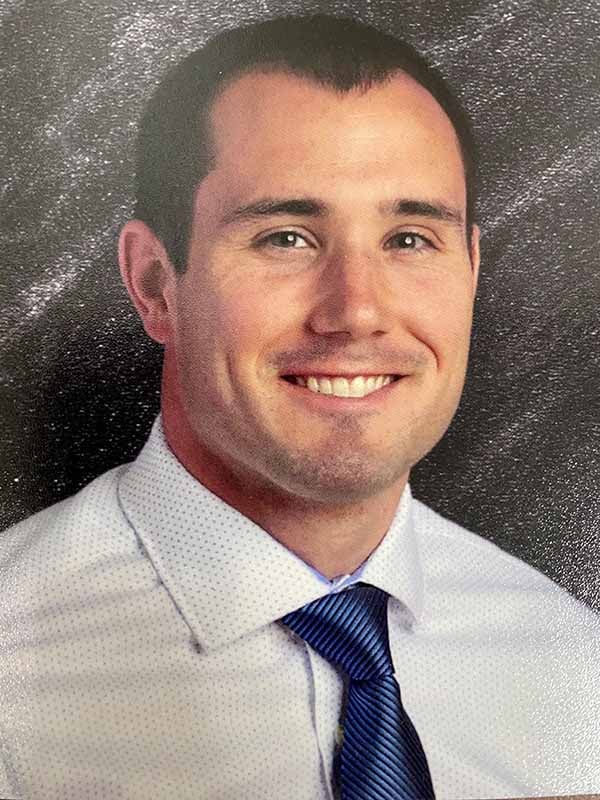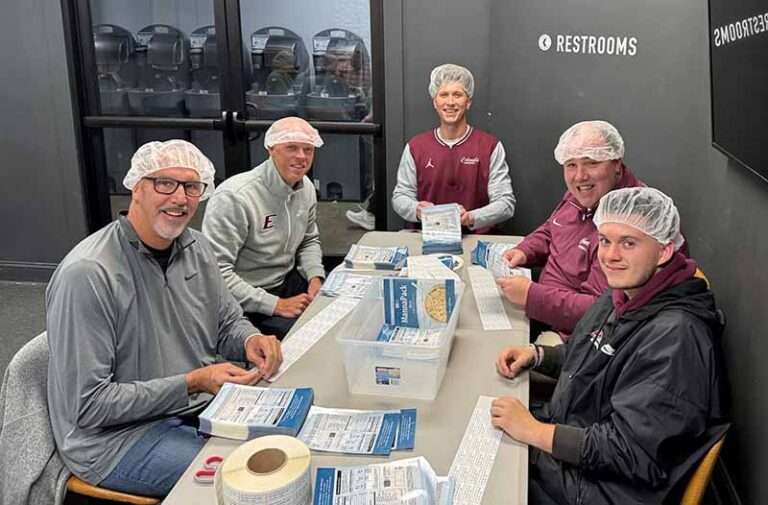By Mark Hansel
NKyTribune managing editor
St. Elizabeth Healthcare CEO Garren Colvin made a strong argument in support of needle exchange at Saturday’s Kenton County Mayors’ Group Meeting, but a Northern Kentucky program appears hopelessly stalled.
While the prolonged discussion left the region no closer to a needle exchange program, it did help identify some of the sticking points.

The Northern Kentucky Health District is ready to roll out the program, but cannot do it without local approval.
Some cities and counties might support needle exchange, but only if there is a regional consensus and St. Elizabeth Healthcare would back the program monetarily, but not on hospital property.
The Boone County Fiscal Court and the City of Florence have no intention of approving needle exchange in their communities any time soon.
Colvin led Saturday’s discussion and said needle exchange is desperately needed in Northern Kentucky.
“Our EMS is not safe, with the number of dirty needles that are out every day, our first responders are definitely at risk for receiving Hepatitis C and ultimately HIV,” Colvin said.
Outbreaks of HIV often follow increases in the number of Hepatitis C cases, which have been steadily rising in the region.
Colvin cited Northern Kentucky Health Department statistics that indicate there has been an increase of more than 80 percent in acute Hepatitis C cases since 2010. The increase is directly related to increased heroin use in the region and the average cost of treatment for Hepatitis C is about $86,000.
“A lot of times, the individuals who are receiving this treatment have not been able to fight their addiction and will revert back to usage,” Colvin said. “Most individuals that recover from an addiction like this relapse two or three times.”
Colvin made it clear that while St. Elizabeth Healthcare would help fund a needle exchange program, he does not support using emergency rooms or other St. E facilities to house the program.
“I will support needle exchange to the best of our ability and that means financially we will commit dollars to getting this implemented wherever we can” Colvin said. “There are no successful needle exchange programs across the country located at a hospital. We believe if you are going to put in a program, it needs to be successful and we think that most successful programs are built within the health departments.”
The reason, Colvin said, is that most addicts do not seek treatment right away and when they do eventually ask for help, the health department is equipped to provide that service and an emergency room is not.
“We don’t think the emergency department is the appropriate place for a couple of reasons,” Colvin said. “One we don’t want to overcrowd our emergency departments…and a little bit of not-in-my backyard. We wouldn’t want someone to avoid our emergency departments, because they felt like the only people utilizing (them) were addicted people seeking needles.”

When the State Legislature passed the long-awaited heroin bill earlier this year, the needle exchange provision was viewed as a major victory for proponents of the programs. A provision that requires approval from city and county government has stalled needle exchange in Northern Kentucky because there is resistance in some quarters.
The primary argument against a needle exchange program is that it provides addicts with the tool they need to continue abusing drugs.
The reason municipalities do not want to be among the first on board is that other cities may not follow and their communities will become ground-zero for heroin users.
Covington Mayor Sherry Carran said that’s exactly why her city decided against supporting needle exchange.
“We were willing to approve it, but we thought there would be more cities stepping up to the plate,” Carran said. “When we learned that was not the case, we drew back.”
Colvin suggested cities pass a resolution in favor of needle exchange that would require widespread adoption of the program and is confident Kenton County would support that idea.
“I would even recommend that if we have one city that’s willing to step up, it’s contingent upon Campbell County putting a facility in and contingent upon Boone County putting a facility in,” Colvin said. “I can appreciate that you wouldn’t want to be the only facility because…there would be fear that everyone would flood your town.”
Colvin expressed optimism that the other Northern Kentucky judges-executive would eventually come around on the issue and could muster enough support to gain approval from their respective fiscal courts.

“I think Judge (Steve) Pendery would equally be able to support getting a site in Campbell County,” Colvin said. “Judge (Gary) Moore is cautiously optimistic, he doesn’t think he has all the votes necessary today, but thinks he could get there.”
That came as a surprise to Independence Mayor Chris Reinersman, who said he heard just the opposite at a Northern Kentucky Health Department meeting last week.
“I’m happy to hear that Judge Moore sounds more optimistic to you,” Reinersman said. “The impression we got and (Boone County Commissioner) Charlie Kenner is on that board and Charlie said they don’t have the votes on the commission.”
Recent discussion among Boone County Fiscal Court members indicate it would take a major policy shift for that body to support needle exchange. Even if Moore has started to come around on the issue, as Colvin suggests, he might still be the only positive vote.
In addition, there is no appetite for needle exchange on the Florence City Council, which would also have to support the program. The Health Department’s Boone County office is located in Florence.
“The strong impression is that Florence doesn’t seem to have any real support for it either,” Reinersman said. “For this to happen, we need a suburban location.”
Carran agreed that it is not fair to ask cities with a more urban population base, such as Covington or Newport, to take the lead on this issue, when heroin addiction is clearly a regional problem.
“Too many times, people feel the issues are in the urban core and as you said, they are not, they are spread across the whole region,” Carran said. “We talked about doing a resolution that we would approve based on the condition that the other counties would step up…but I think that is going to be a difficult road.”
The heroin bill was touted as a victory by addiction treatment advocates and some provisions, including the widespread distribution of Narcan (Naloxone) kits, have had a positive impact.
The hope that it would spur needle exchange programs throughout Northern Kentucky, however, still appears to be a long way off.
Contact Mark Hansel at mark.hansel@nkytrib.com



















These are usually good Christian folk with weird ideas. When they thought that AIDS was a gay disease, it was okay they were dying off as, God was punishing them for being gay. When; “normal” people contracted the disease through blood transfusions, IV drug user to partner transmission, placental transmission, etc. the money that went in to research and a cure has been phenomenal. Now people are living with HIV. Taxpayers are going to pay for this issue to the tune of billions of dollars because Christian people want to believe that giving out cheap needles is condoning use. Better to pay for the rampant spread of disease which will occur by persons addicted sharing needles. I have lost a lot of friends who were IV drug users in the 60’s and early 70’s, became sober and had useful lives, only to die from Hep C years in to their recovery. This heroin epidemic makes the 60’s epidemic pale in comparison. Watch out Kentucky, your so called Christian values are killing people daily and God is watching.
NKY is Ground Zero for Heroin. 1,074 overdoses Covington ranked 3rd. NKY is ranked number 1 for HEP C surpassing Kentucky being ranked number 1. When HIV breaks out and it’s going to they will all be sorry because they were told. It does not condone use they will use regardless. Keep your officers safe from HEPC and HIV. Lexington has their exchange set up in the Health Department why can’t our Health Department do the same. NKY ignored the problem now we’re in the worst Epidemic ever. Citizens children are dying daily out here. Just remember these are the people who elected you. You work for the Community and its your job to keep the Community safe and the Community is FED UP.